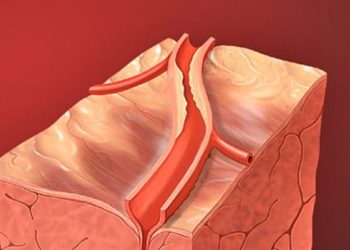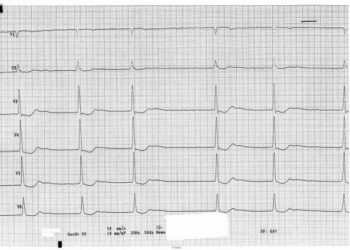Percutaneous intervention outcomes for STEMI similar for women and men
1. This meta-analysis of outcomes after primary percutaneous coronary intervention for ST-segment elevation myocardial infarction (STEMI) showed that women fared similarly to men in terms of hospital mortality and 1-year mortality, after adjusting for major confounding variables.
2. There were major differences in the baseline characteristics between women and men, with women having higher cardiovascular risk profile, older age at time of presentation, and a greater prevalence of diabetes, hypertension, and hyperlipidemia.
Evidence Rating Level: 1 (Excellent)
Study Rundown: Coronary artery disease (CAD) accounts for 1 in 6 deaths amongst Americans. However, there has been a significant reduction in mortality associated with CAD in the last decade, due mostly to modifying cardiovascular risk and improving acute care during myocardial infarctions. An example of this is primary percutaneous coronary intervention (PPCI) as the mainstay of reperfusion therapy for ST-segment elevation myocardial infarction (STEMI). One observation that has often been made is that women have worse outcomes than men after PPCI. This systematic review and meta-analysis of the data on PPCI after a STEMI was done to identify sex-specific differences in outcomes. The results of this study suggest that there are significant baseline differences between women and men that confound the results. After taking these into consideration, the study found that women fared similarly to men in terms of hospital mortality and 1-year mortality.
The major strength of this study was that almost all relevant studies were included in the analysis since the inclusion criteria were fairly general. The investigators also showed the unadjusted and adjusted data to highlight the important effects of the confounders. The weakness of the study was that most of the studies were observational, rather than randomized studies. Also, there were significant differences in the protocol and outcome determination amongst the various studies, as is often the case in any meta-analysis.
Click to read the study, published today in JAMA Internal Medicine
In-Depth [meta-analysis]: The investigators included a wide array of reliable search tools to obtain the included studies. The relevant inclusion criteria for the studies included the following: study type had to be observational or a randomized controlled trial, PPCI was the therapy of choice for the STEMI, PPCI was done within 12 hours of symptom onset, and the studies had to report in-hospital and 1-year mortality results. A total of 35 studies were included in the analysis, 31 of which were observational.
The meta-analysis identified a number of confounding baseline differences between women and men, including women having higher cardiovascular risk profile, older age at presentation, and a greater prevalence of diabetes, hypertension, and hyperlipidemia. As a result, the investigators reported both unadjusted and adjusted relative risk ratios. For in-hospital all-cause-mortality, the unadjusted results showed an increased risk for women relative to men (RR 1.93; 95%CI 1.75-2.14). However, the adjusted results showed a much more attenuated risk, albeit still statistically significant (RR 1.48; 95%CI 1.07-2.05). Similarly, for 1-year all-cause-mortality, the unadjusted results again showed an increased risk for women (RR 1.58; 95%CI 1.36-1.84). However, no significant risk was identified after adjusting for confounders (RR 0.90; 95%CI 0.69-1.17).
More from this author: Mechanical aortic valve replacement linked with increased early mortality, Proton pump inhibitor boluses as effective as infusions in ulcer bleeds, Intensity of medical residency may affect future practice style, Coronary angiography in asymptomatic patients may lead to inappropriate percutaneous interventions, Blood clot prophylaxis medicine inpatient may be unnecessary
Image: PD
©2012-2014 2minutemedicine.com. All rights reserved. No works may be reproduced without expressed written consent from 2minutemedicine.com. Disclaimer: We present factual information directly from peer reviewed medical journals. No post should be construed as medical advice and is not intended as such by the authors, editors, staff or by 2minutemedicine.com. PLEASE SEE A HEALTHCARE PROVIDER IN YOUR AREA IF YOU SEEK MEDICAL ADVICE OF ANY SORT.






![Novel biodegradable sirolimus-eluting stents non-inferior to durable everolimus-eluting stents [BIOSCIENCE trial]](https://www.2minutemedicine.com/wp-content/uploads/2014/09/Taxus_stent_FDA-e1607803635904-75x75.jpg)
